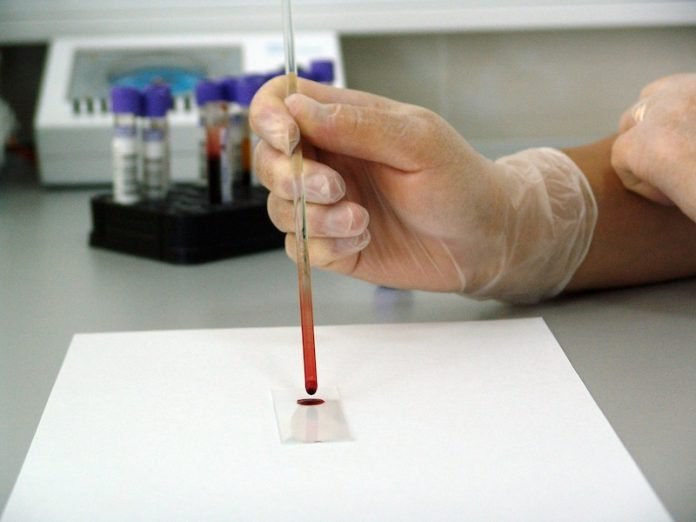
In a new study, researchers have developed a new blood test that may help detect Alzheimer’s disease at an early stage.
This finding may help improve the diagnosis and treatment of Alzheimer’s.
The research was conducted by a team from several research institutions in South Korea.
Alzheimer’s disease is a neurodegenerative disease that involves brain function deterioration.
It can cause many symptoms, including loss of memory and other cognitive abilities. The disease is currently untreatable, and patients gradually lose their capabilities to do daily tasks and eventually die.
Previous research has shown that in the brains of Alzheimer’s disease, there is the buildup of an amyloid-beta (Aβ) peptide.
Because Aβ is able to move from the brain into the bloodstream, it can be used as a biomarker for early diagnosis of the disease.
However, it has been unknown if Aβ in the blood could really show that Alzheimer’s disease already has started.
In the current study, the team has developed a new blood test that may solve the problem.
They found that when a small molecule called EPPS was added to a solution that holds Aβ together, the molecule could break them apart and reveal their presence better.
The new blood test could examine the broken Aβ samples from patients and researchers can compare the results with that from healthy people to see if there are any differences.
The team believes that their blood test may help develop a new method to diagnose Alzheimer’s disease.
It may help detect the disease even before patients show any symptoms. The new blood test could also be used as a way to monitor the progression of Alzheimer’s.
The lead author of the study is YoungSoo Kim from Yonsei University.
The study is published in the journal of Science Advances.
Copyright © 2019 Knowridge Science Report. All rights reserved.



